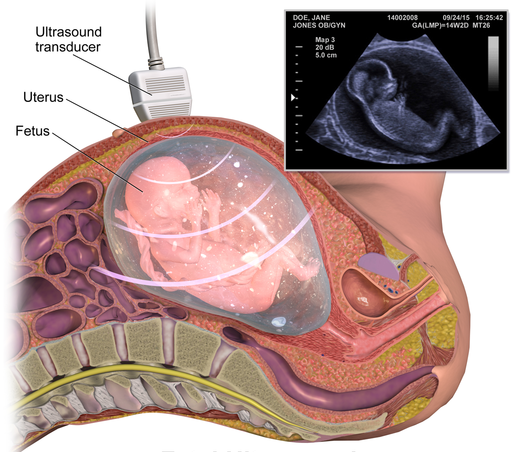
Fetal imaging
Fetal imaging plays a crucial role in modern prenatal care, offering expectant parents and healthcare providers detailed insights into the development and well-being of the unborn baby. In Nagpur, advanced medical facilities and skilled professionals have made fetal imaging accessible and reliable. This guide explores everything you need to know about fetal imaging in Nagpur, including its types, benefits, procedures, and the best centers offering these services.
What is Fetal Imaging?
Fetal imaging refers to a range of diagnostic techniques used to visualize the fetus during pregnancy. These techniques help monitor fetal growth, detect abnormalities, and ensure the health of both the mother and the baby. With advancements in medical technology, fetal imaging has become more precise, enabling early detection of potential issues and timely interventions.
Types of Fetal Imaging Techniques
1. Ultrasound Imaging
Ultrasound is the most common and widely used fetal imaging technique. It uses high-frequency sound waves to create real-time images of the fetus. In Nagpur, ultrasound imaging is available in various forms:
- 2D Ultrasound: Provides flat, black-and-white images of the fetus.
- 3D Ultrasound: Offers three-dimensional images, giving a more detailed view of the baby’s features.
- 4D Ultrasound: Captures real-time movements of the fetus, creating a video-like effect.
- Doppler Ultrasound: Assesses blood flow in the umbilical cord, placenta, and fetal heart.
2. Magnetic Resonance Imaging (MRI)
Fetal echocardiography focuses on the baby’s heart, assessing its structure and function. This technique is essential for diagnosing congenital heart defects.
4. Amniocentesis and Chorionic Villus Sampling (CVS)
While not imaging techniques per se, these procedures are often performed alongside imaging to collect genetic material for further analysis.
Benefits of Fetal Imaging
- Early Detection of Abnormalities: Identifies structural or developmental issues early in pregnancy.
- Monitoring Fetal Growth: Tracks the baby’s growth and ensures it aligns with gestational age.
- Assessing Placental Health: Evaluates the placenta’s position and function.
- Guiding Interventions: Helps plan medical or surgical interventions if needed.
- Reassurance for Parents: Provides peace of mind by confirming the baby’s health.
When is Fetal Imaging Recommended?
- First Trimester: To confirm pregnancy, determine gestational age, and detect early abnormalities.
- Second Trimester: To assess fetal anatomy, check for structural defects, and determine the baby’s sex.
- Third Trimester: To monitor growth, evaluate placental function, and prepare for delivery.
Fetal Imaging in Nagpur: Why Choose Nagpur?
1. Advanced Technology
Nagpur’s leading hospitals and diagnostic centers are equipped with cutting-edge imaging technology, including 3D/4D ultrasound machines and fetal MRI scanners.
2. Experienced Specialists
The city boasts a pool of highly skilled radiologists, sonographers, and maternal-fetal medicine specialists who ensure accurate diagnoses and personalized care.
3. Affordable Services
Compared to metropolitan cities, fetal imaging services in Nagpur are more affordable, making them accessible to a larger population.
4. Comprehensive Care
Many centers in Nagpur offer end-to-end prenatal care, combining fetal imaging with genetic counseling, nutritional guidance, and high-risk pregnancy management.
What to Expect During a Fetal Imaging Session
- Preparation: Depending on the type of imaging, you may be asked to drink water or avoid eating for a few hours before the procedure.
- Procedure: The imaging session typically lasts 20-60 minutes. For ultrasound, a gel is applied to your abdomen, and a transducer is moved over the skin to capture images.
- Results: The radiologist or sonographer will analyze the images and provide a detailed report. In some cases, results are discussed immediately.
- Follow-Up: If any abnormalities are detected, your doctor will recommend further tests or interventions
Safety of Fetal Imaging
Fetal imaging is considered safe for both the mother and the baby. Ultrasound uses sound waves, which have no known harmful effects. Fetal MRI does not involve radiation and is also safe when performed by trained professionals. However, these procedures should only be done when medically necessary and under the guidance of a healthcare provider.
Tips for Choosing a Fetal Imaging Center
- Technology: Ensure the center uses advanced imaging equipment.
- Expertise: Choose a center with experienced radiologists and sonographers.
- Reputation: Read reviews and seek recommendations from your doctor or friends.
- Cost: Compare prices and check if the center offers package deals.
- Location: Opt for a center that is easily accessible.
Conclusion
Fetal imaging is an invaluable tool in modern prenatal care, providing critical information about the baby’s development and health. In Nagpur, expectant parents have access to world-class fetal imaging services at affordable prices. By choosing the right center and staying informed, you can ensure a healthy and stress-free pregnancy journey.Contact Us
Whether you’re looking for a routine ultrasound or advanced fetal MRI, Nagpur’s leading hospitals and diagnostic centers are equipped to meet your needs. Schedule your fetal imaging session today and take the first step toward ensuring your baby’s well-being.Schedule your Consultation with Dr. Ritesh Nawkhare
